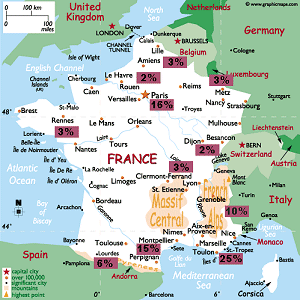Maltese Surnames in France: AttardAuthor: Mark Caruana The study of surnames has over the years yielded very useful information about the spread of cultures and not merely of individuals across nations. Studies such as those by Luigi Luca Cavalli-Sforza in Italy emphasise the importance of this approach to understanding the genetic basis of populations, and provide a very useful index of the magnitude and direction of diasporas throughout the ages. Maltese migrants have wandered around the Mediterranean over the past several hundred years, but were particularly active around the middle of the 19th century, when migration to N. Africa, and the islands around Greece were favoured haunts. More recently, political upheavals, particularly in countries such as Egypt, Libya, Tunisia and Algiers have meant that many Maltese settlers were forced to leave, often with very short notice, to find a haven elsewhere. Some were fortunate enough to be welcomed back in their homeland. Some, like those Maltese born in Egypt found themselves unwanted here (to our everlasting shame), and had to emigrate to England, Italy and elsewhere. Others, preferred to seek wider fields, particularly in France. An analysis of the surnames of the telephone subscribers in France (1998 Directory) shows that there are several persons with Maltese names. For instance, the surname "Attard" can be found 595 times. 
It is not surprising that by far the largest majority is to be found in the south of France, namely in the Mediterranean region of Provence Alpes Cote d'Azure (25%). The port of Marseilles tops the list, with 53 Attard's out of a total of 152 for the province. A large number of Attard's are also found in the Ile-de-France, and the highest number is in the nation's capital, Paris. Others are found scatted throughout the nation as indicated in the attached map. Studies of this nature serve to compile a composite map of the Maltese diaspora. It is interesting to see in Malta an increasing interest in the second and subsequent generation, largely as a market for the tourist trade, and even, since the Olympic games as a possible way of linking with Maltese athletes abroad. We hope that these studies will help to build the whole picture, of which this analysis is just one piece of the jig-saw.
  
|


![]() .
.